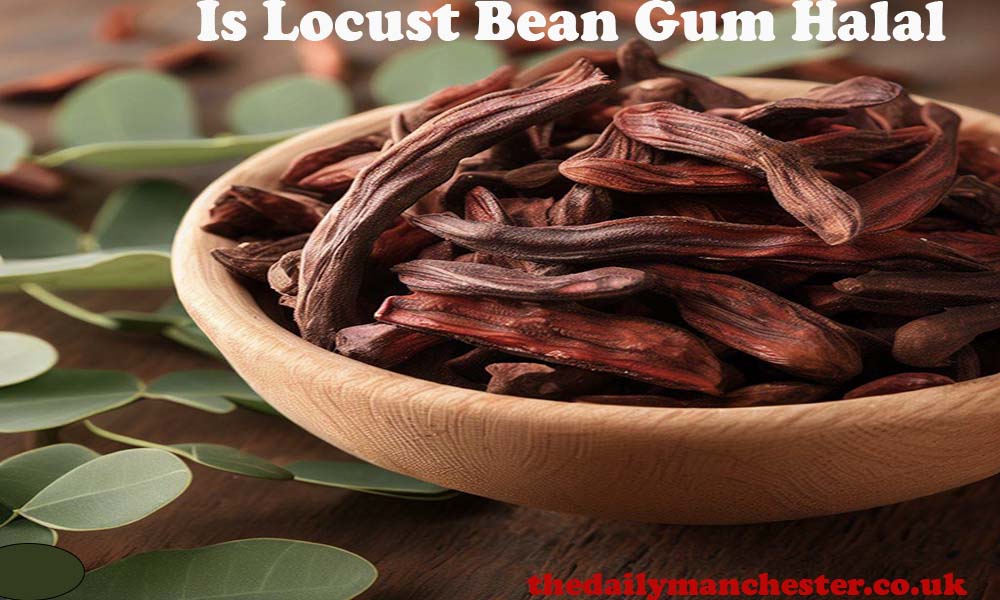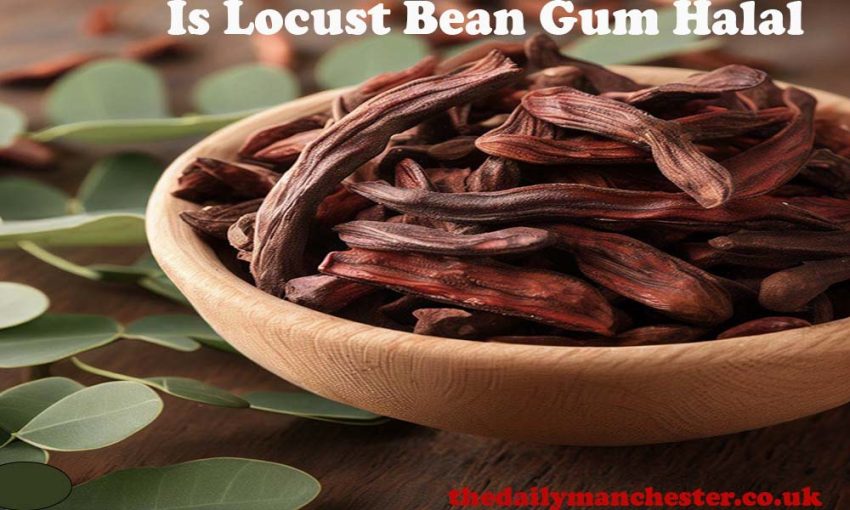Locust bean gum, also known as carob gum, is a natural food additive derived from the seeds of the carob tree. It has been used in food products such as ice cream, dairy products, and baked goods for its stabilizing and thickening properties. But is locust bean gum halal?
Yes, locust bean gum is considered a halal food ingredient. It is a plant-based thickener and stabilizer commonly used in the food industry.
However, while its source is inherently Halal, it’s crucial to note that the overall Halal status of a product also depends on other ingredients and the manufacturing process, including cross-contamination risks. Therefore, for strictly observing Muslims, seeking products with a Halal certification can offer additional assurance.
For know details, scroll down.
What Is Locust Bean Gum?
Locust bean gum is a natural food additive that is extracted from the seeds of the carob tree, native to the Mediterranean region. The scientific name for this tree is Ceratonia siliqua. The gum is obtained through de-husking, milling, and grinding the seeds into a fine powder, then separated from the cotyledons.
What is locust bean gum used for?

Locust bean gum, also known as carob gum, is used in various food and industrial applications due to its properties as a thickening agent, a gelling agent, and a stabilizer. Here are some specific uses:
- Food Industry: Locust bean gum is often used in the food industry to thicken and stabilize products. This includes ice cream, yogurt, salad dressings, and sauces. It helps to prevent ice crystals in ice cream, gives a smooth texture to yogurt, and improves the consistency of sauces and dressings.
- Baking: It’s used in gluten-free baking to improve the texture and elasticity of the dough.
- Cheese Making: In the cheese-making process, it’s used to control the moisture content and maintain the texture of the cheese.
- Pet Food: Locust bean gum is used in canned pet food to improve texture and consistency.
- Cosmetics and Pharmaceuticals: Locust bean gum is also used as a thickener and stabilizer in cosmetics and pharmaceuticals.
- Paper Industry: It’s used as a sizing agent to improve the paper’s finish and reduce porosity.
- Textile Industry: It is used in the textile industry during printing, finishing, and sizing processes.
- Oil Drilling: It’s used as a thickening agent in some oil drilling operations.
Remember to check with your doctor or a dietitian if you have any health concerns related to consuming locust bean gum, as some people may experience digestive discomfort from consuming it.
Is Locust Bean Gum Halal?
Yes, Locust Bean Gum, also known as carob bean gum, is generally considered Halal. It’s derived from the seeds of the carob tree and does not involve any animal products or alcohol in its typical production process.
Let’s dig deeper and find out if locust bean gum is halal certified and it’s status in different countries.
The Certification Process For Locust Bean Gum
Halal certification is vital for Muslims as it helps them identify food products that comply with Islamic dietary laws. Several permit certification bodies worldwide offer services to ensure that products containing locust bean gum meet Islamic dietary requirements. The certification process for locust bean gum involves the following steps:
- Verification of the raw material source
- Inspection of the manufacturing process
- Assessment of the finished product
Halal Ingredients Used In The Production Of Locust Bean Gum
Locust bean gum is produced by grinding the seeds of the carob tree, and it is a plant-based ingredient that is halal by default. However, some manufacturers may add non-halal ingredients during production, which may invalidate its halal status.
Manufacturers must use halal ingredients in the production process to ensure that locust bean gum is halal.
The Halal Status Of Locust Bean Gum In Different Countries
The halal status of locust bean gum varies between countries. In Muslim-majority countries, such as Saudi Arabia, the united arab emirates, and Malaysia, halal certification is mandatory for all food products. As a result, locust bean gum must also pass through a rigorous certification process to receive a halal certificate.
The halal certification process is voluntary in non-muslim countries, such as the united states. Many food manufacturers in these countries seek halal certification to cater to Muslim consumers’ growing demand for halal products.
Ultimately, the halal status of locust bean gum depends on the certification process and the ingredients used during production. Muslim consumers should look for halal-certified locust bean gum products or check the ingredient list to ensure they comply with Islamic dietary laws.
Are Locusts permissible to eat?
For more know, watch the below video.
Does Locust Bean Gum Have Gelatin?
No, locust bean gum, also known as carob gum, is not derived from gelatin and does not contain gelatin. Locust bean gum is a polysaccharide (a type of carbohydrate) extracted from the seeds of the carob tree. It’s often used as a thickening and gelling agent in food.
Gelatin, on the other hand, is a protein that’s typically derived from the collagen in animal bones and skin. It’s also used as a gelling agent in food, among other things.
So while locust bean gum and gelatin can serve similar purposes in recipes, they are derived from very different sources, and one does not contain the other.
Frequently Asked Questions
No, locust bean gum is not made from insects. It is a thickening agent extracted from the seeds of the carob tree and used in many food products.
Yes, locust bean gum is generally considered safe for infants as it is a natural ingredient and has been approved by the FDA for use in food products. However, it’s always best to consult a pediatrician before introducing new foods to your baby.
Yes, many products can use locust bean gum as a substitute for gelatin. It is a popular vegan-friendly alternative and offers similar thickening and stabilizing properties.
Sum Up
Locust bean gum, a natural additive extracted from carob tree seeds, is deemed halal. Its longstanding use in food preparation tests its safety.
Major Islamic organizations have certified it halal, verifying its adherence to Islamic dietary laws. However, one must check the origin of locust bean gum in food products. As a conscientious Muslim consumer, prioritizing halal and avoiding harmful ingredients is vital.
Hence, locust bean gum is a safe, halal substance that enhances food texture and stability and promises a wholesome, enjoyable consumption experience.
Read more:

